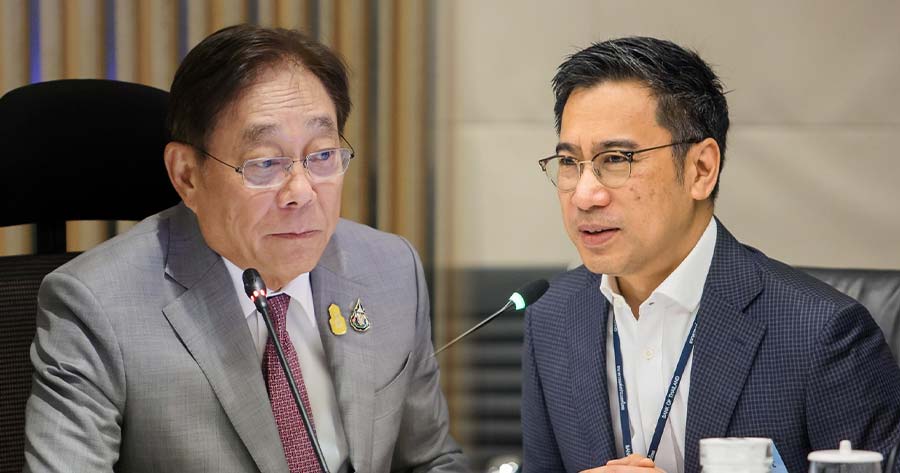Thailand’s central bank has succeeded in maintaining the country’s inflation target at 1% to 3% for the year 2025, thwarting the government’s efforts to widen the band to accommodate price increases and trigger additional interest rate cuts.
The agreement between Finance Minister Pichai Chunhavajira and Bank of Thailand Governor Sethaput Suthiwartnarueput, reached after a lengthy meeting, comes with conditions that the central bank implement measures to boost inflation to 2% and drive growth in the country.
Deputy Governor Piti Disyatat emphasized that the current inflation target, in effect since 2020, remains suitable for the upcoming year and that both entities have reached a consensus after the recent discussions, signaling a compromise between the Bank of Thailand and the Finance Ministry.
Meanwhile, the process of determining the inflation target is still ongoing and is expected to be finalized by the end of the year, as stated by Piti. According to Thai regulations, both the Finance Ministry and the BOT are required to reach a consensus on the target inflation rate before it is officially established. Additionally, the approval of the cabinet is necessary for the target to be ratified.
The government’s persistent advocacy for a higher inflation target aims to lower borrowing costs and propel economic expansion, contrasting with the central bank’s stance that the existing target has been beneficial for the economy.
Despite inflation falling below the target range earlier in the year, the central bank anticipates a return to the lower end of the band by the fourth quarter.
The limited inflation figures do not suggest deflationary trends, as there has been no widespread and sustained decrease in prices, as affirmed by the Monetary Policy Committee. The committee minutes from meetings conducted on October 9 and October 16 revealed that medium-term inflation forecasts are in line with the designated target range.
Moving forward, the Bank of Thailand plans to leverage a combination of monetary policy tools to support the economy while keeping a watchful eye on currency movements, acknowledging their significant impact on the economic landscape.
Thailand’s economic growth has trailed that of its neighboring countries, hindered by escalating household debt and challenges in the manufacturing sector. Prime Minister Paetongtarn Shinawatra has been advocating for increased budget allocations and reduced interest rates to stimulate growth and investment in the country.





